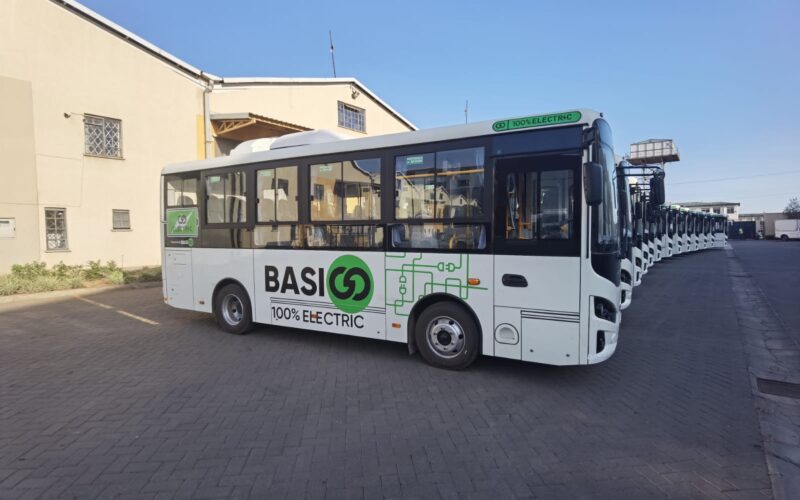Chui Ventures, a Pan-African seed-stage venture capital firm, has closed its debut fund at $17.3 million, significantly overshooting its initial $10 million target by 73%. The final close marks a milestone not just in fundraising quantum, but in who’s writing the checks.
The fund’s cap table tells an unusual story for African venture capital: over 30 High-Net-Worth Individuals (HNWIs) participated in the round, with 90% of African origin. More remarkably, 60% are African female executives—a demographic that remains dramatically underrepresented in venture capital investing across the continent.
“Chui Ventures represents the next chapter of African venture capital: local capital allocators backing local founders to deliver transformative mass-market solutions,” said Dr. Dorothy Nyambi, CEO of MEDA – Mastercard Foundation Africa Growth Fund, which backed the fund alongside the Michael & Susan Dell Foundation.
The composition of Chui’s LP base challenges persistent narratives about African capital availability and appetite for venture risk. While most African VC funds remain heavily dependent on foreign institutional investors, Chui has deliberately mobilized local private wealth—a strategy fund manager Joyce-Ann Wainaina believes is “vital to the entire ecosystem.”
From Citibank to Chui: The Ex-Banker Betting on African Founders
Wainaina, who spent over 30 years at Citibank—including stints as Managing Director for Global Network Banking across Sub-Saharan Africa and CEO of Citi East Africa—founded Chui Ventures with an explicit gender-inclusive mission.
Her thesis is simple but powerful: Africa’s youngest continent (median age 19.3 years) is producing a digital-native generation raised on internet and mobile phones. This demographic will define consumption, commerce, and financial behavior for decades. The founders who understand them best—because they are them—deserve capital.
Since its first close in February 2023, Fund I has deployed 60% of committed capital across 18 portfolio companies (targeting 22 total) in five Sub-Saharan African countries over 30 months. Portfolio companies include:
- Fingo Africa – Digital banking for youth and the unbanked
- PaidHR – HR-tech startup that recently raised $1.8M seed round led by Accion Venture Lab
- Tappi – End-to-end digital commerce SaaS for SMEs, which secured $1.5M and has expanded to Côte d’Ivoire
- Uncover – Tech-enabled beauty brand that raised $1.4M
- Shop Zetu – Fashion e-commerce platform
- Leta – B2B supply chain and logistics SaaS provider that raised $5M
- Pricepally – Nigerian online grocery startup that secured $1.3M
- AgrilogiQ – Agricultural technology platform
The portfolio strategy is clear: tech-enabled, mass-market solutions built by “native African founders” who possess what Wainaina calls “strong local expertise and a global mindset.”
The Gender Inclusion Strategy Isn’t Just Optics
Chui’s focus on gender isn’t corporate social responsibility theater—it’s investment thesis. The firm actively targets gender-diverse founding teams and has achieved 44% female representation among founders in its portfolio.
“Their focus on gender and youth inclusion ensures both outsized returns and lasting social impact,” said Dr. Nyambi.
Thashlin Govender, Senior Director at the Michael & Susan Dell Foundation, echoed this: “Chui backs local founders who know exactly what their communities need—and have the bold ideas and drive to deliver. Their businesses are creating jobs, growing incomes, and fueling opportunity where it matters most.”
The numbers support the approach. Portfolio companies have created over 1,200 direct jobs and 40,000+ indirect jobs to date, according to the firm.
The Female Executive LP Phenomenon
The concentration of African female executives as LPs deserves closer examination. In global venture capital, women represent roughly 15% of decision-makers at VC firms and an even smaller percentage of fund LPs. In Africa, where wealth concentration remains dominated by male business leaders, the 60% female executive LP participation in Chui’s fund is unprecedented.
This demographic brings more than capital. Many are senior executives at major African corporations, family office principals, and entrepreneurs who’ve built businesses across the continent. Their networks, operational expertise, and market insights create value beyond the check—particularly for early-stage founders navigating complex African markets.
The composition also signals something broader: African women with capital are increasingly willing to deploy it into venture-stage companies, challenging assumptions that local wealth prefers traditional assets like real estate or public equities.
Institutional Backing Provides Validation and Firepower
While local private capital dominates the LP base, institutional backing from Mastercard Foundation Africa Growth Fund and Michael & Susan Dell Foundation provides crucial validation and operational support.
The Mastercard Foundation previously committed $9 million to Chui as part of a broader strategy investing in African fund managers. The foundation’s Africa Growth Fund portfolio now includes five investment vehicles: Chui Ventures, Aruwa Capital Management (Nigeria), Inua Capital (Uganda), VestedWorld (pan-African), and SME Impact Fund (Tanzania).
This cohort of emerging fund managers shares common challenges: raising from skeptical international LPs, building track records without prior fund performance, and navigating macroeconomic volatility that has made African venture fundraising particularly difficult in recent years.
African VC fundraising has faced significant headwinds. According to African Private Equity and Venture Capital Association (AVCA) data, total VC fundraising across Africa declined from peak levels in 2021-2022, with many funds struggling to hit initial targets. Chui’s oversubscription runs counter to this trend.
What’s Next: Fund II Already in Motion
With Fund I closed and substantially deployed, Chui has already launched fundraising for Fund II, targeting $60 million with a hard cap of $100 million—more than 3x the size of its debut vehicle.
The strategy for Fund II will likely maintain the same seed-stage, gender-inclusive focus while potentially writing larger checks as portfolio companies from Fund I mature and require follow-on capital.
For Wainaina, the journey from managing billions at Citibank to raising venture funds represents a deliberate pivot toward direct impact. As a Senior Fellow at Yale University’s Jackson School of Global Affairs and winner of the ‘Woman Investor of the Year 2023’ award from the East Africa Venture Capital Association (EAVCA), she’s positioned as both practitioner and thought leader in African venture capital.
The Broader Context: Who Funds African Venture Capital?
Chui’s LP composition highlights a persistent challenge in African venture capital: the vast majority of capital still comes from outside the continent. DFIs (Development Finance Institutions), family offices from Europe and North America, and institutional investors from the Middle East dominate LP bases of most African VC funds.
This creates vulnerabilities. When global LP appetite for emerging markets declines—as it has periodically—African funds struggle disproportionately. Currency risk, political instability, and regulatory uncertainty make foreign LPs cautious.
Local capital mobilization, as Chui has demonstrated, provides stability and alignment. African LPs understand local contexts, have longer time horizons, and often possess strategic relationships that benefit portfolio companies. The challenge has been convincing them that venture returns justify the risk compared to more familiar asset classes.
Chui’s success in attracting African HNWIs—particularly female executives—suggests this is changing. As African tech companies deliver exits (though still rare) and as the continent’s digital economy matures, local wealth holders are recognizing venture capital as an asset class worth serious allocation.
Portfolio Impact Beyond Capital
The impact metrics Chui cites—1,200 direct jobs, 40,000+ indirect jobs, 44% female founding teams—reflect a thesis that venture capital in Africa must balance financial returns with tangible economic development.
This isn’t unique to Chui. Most African VC firms position themselves somewhere on the spectrum between pure financial returns and impact investing. What differs is emphasis and measurement.
For Chui, the gender dimension appears central to investment decisions, not peripheral. This could prove prescient. Research from BCG and First Round Capital has shown that gender-diverse founding teams often outperform homogeneous teams, particularly in consumer-facing businesses where understanding diverse user bases matters.
In African markets, where women represent significant purchasing power and decision-making influence—particularly in categories like fintech, healthcare, education, and e-commerce—teams that include female founders may have structural advantages in product-market fit and go-to-market execution.
The Road Ahead
Chui’s $17.3 million Fund I positions the firm among a growing cohort of African seed-stage investors including Launch Africa, Microtraction, Ventures Platform, and 4DX Ventures.
The competitive dynamics favor funds with clear differentiation. For Chui, that differentiation is threefold: gender-inclusive investment thesis, local capital mobilization, and Wainaina’s three decades of African banking relationships.
As the firm moves toward Fund II, the test will be whether the portfolio companies from Fund I can deliver returns that justify the model. Venture capital is a long game—exits typically take 7-10 years. But momentum indicators like follow-on funding rounds (several portfolio companies have raised subsequent rounds) and job creation suggest traction.
For African founders building tech-enabled businesses targeting mass markets, particularly those led by women or gender-diverse teams, Chui Ventures has established itself as a credible seed-stage option backed by LPs who understand the continent intimately.
And for the 60% of Chui’s LPs who are African female executives, their capital deployment sends a message: African women with wealth are no longer content to be passive observers of the continent’s tech transformation. They’re becoming active architects of it.













Comments 1